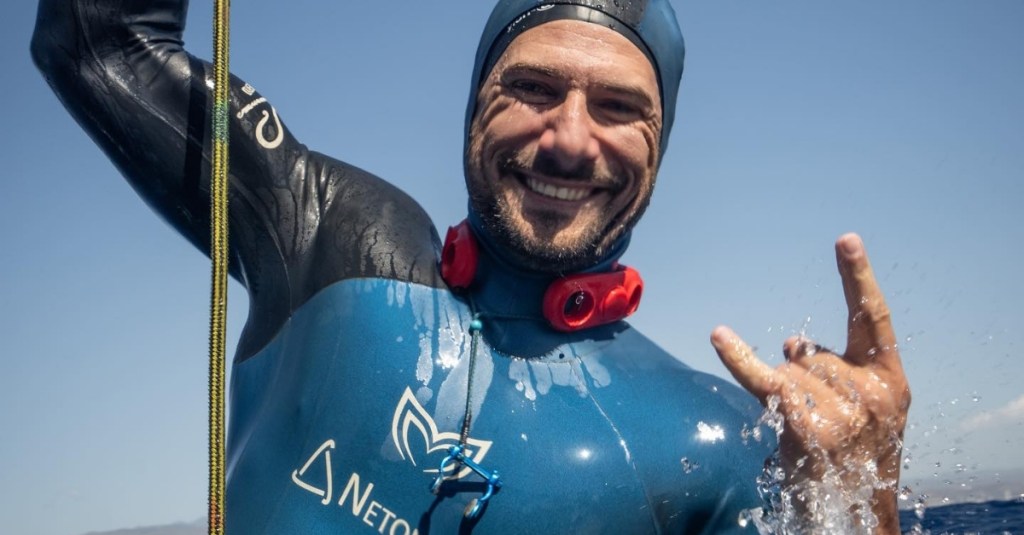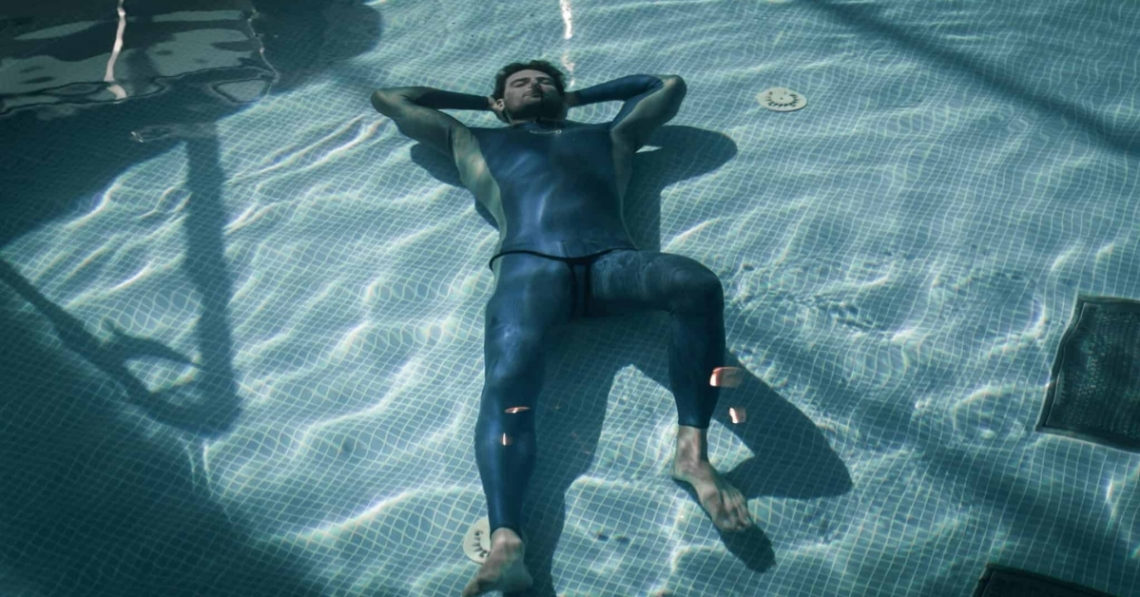Most people can barely hold their breath through a verse of “Happy Birthday.” Croatian freediver Vitomir Maričić recently did it for 29 minutes and 3 seconds—long enough to watch an entire sitcom episode, including commercials, without inhaling once.
Guinness World Records confirmed the feat in late August, when Maričić submerged himself in a 3-meter pool and stayed there for nearly half an hour.
It sounds like he’s superhuman, but he’s actually a mere mortal with some help from science. Maričić spent ten minutes beforehand breathing pure oxygen, a sanctioned strategy in the Guinness “oxygen-assisted” category. Normal air is about 21 percent oxygen; by filling his lungs with 100 percent, he essentially pre-loaded his bloodstream with the maximum possible supply.
Even so, that doesn’t explain how his body resisted the overwhelming urge to take a breath for nearly half an hour. That reflex has little to do with running out of oxygen and everything to do with carbon dioxide.
As cells burn oxygen, they produce CO₂, which builds up in the blood. Rising levels trigger the brain’s survival alarms—what you feel as that panicky “I need to breathe now” moment. Freedivers train their lungs and diaphragm to tolerate this build-up and resist the automatic spasms meant to force them to inhale.
Maričić admitted, “It got worse and worse physically, especially for my diaphragm, because of the contractions. But mentally I knew I wasn’t going to give up.”

Here’s How a Freediver Pulled Off a Record-Breaking 29-Minute Breath Hold
Physical prep matters too. Cardiovascular workouts and targeted breath exercises expand lung capacity, while specialized techniques help shuttle oxygen more efficiently through the bloodstream.
Maričić has previously held his breath for over ten minutes without supplemental oxygen, a feat that itself borders on science fiction. By combining years of training with pure oxygen pre-breathing, he stretched that window almost three times longer.
Mental discipline plays a significant role. Freedivers rely on meditation-like focus to stay calm and keep heart rates low, reducing oxygen demand. Maričić described the cognitive shift that came after 20 minutes underwater: “Everything became easier, at least mentally.”
He remained insanely still on the pool floor, minimizing oxygen burn from movement. This extreme level of “chill” bought him the last precious minutes he needed to set the record. Of course, scientists and freedivers alike warn against trying this in your bathtub.
Extended breath-holding without supervision can lead to blackout, brain damage, or worse. Inhaling pure oxygen also carries risks, including oxygen toxicity. Maričić himself called it “a very advanced stunt done after years of professional training and should not be attempted without proper guidance and safety.”
So while you may never hit 29 minutes, something is fascinating about watching a basic human limit rewritten. Most of us can’t skip a breath without anxiety. Maričić managed to skip 17,000 of them.
The post The Science of How a Freediver Held His Breath for 29 Minutes appeared first on VICE.




